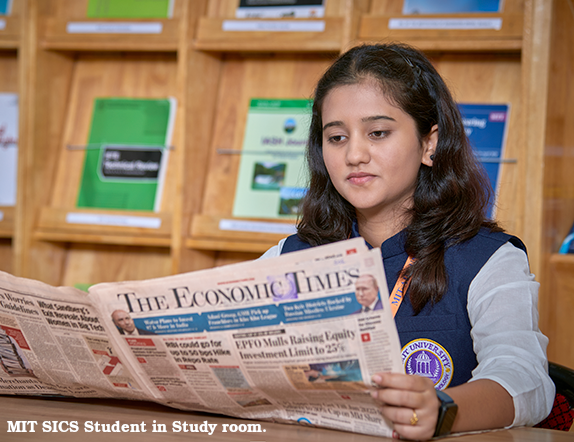
The BA (Administration) and MA (Public Administration) programme is designed for the students who aspire to prepare for competitive examinations like UPSC / State PSCs. The main objective behind this programme is to educate the career-oriented students in a different subject of administration and to train them in various need based allied subjects of knowledge to make them competent and in ready state to qualify UPSC, State PSCs and other competitive examinations just after completion of BA, MA Course.
B. A. (Administration) is a comprehensive 3 Year Program and M.A. (Public Administration) is a comprehensive 2 Year Program. They are mostly residential Degree Programme. Well- structured Modules of academic and extra-curricular activities are designed under the guidance of Ex-UPSC Chairman, Dr. D. P. Agrawal and Subject Experts to build all over personality of the students, required for qualifying UPSC, State PSCs and other Government Competitive Exams. After UG-PG Program, the students are recommended to do the Optional Subject Lectures (One Optional Subject out of History, geography and Political Science) and appear for five Mock Examinations (Prelims, Mains and Interview Exams as per UPSC and State PSCs pattern) for one year. It is optional for the student and not mandatory.
Read MoreThe BA and MA programs at the MIT School of Indian Civil Services are designed under the guidance of Dr. D. P. Agrawal, former UPSC Chairman and Chairman of the Advisory Board of the MIT School of Indian Civil Services, and academic experts from different subject domains. The curriculum prepares the students for a wide range of government recruitment exams (UPSC, MPSC, NABARD, RBI, CBI-CID, EPFO, NIACL, Railway Board, IBPS, SSC, and various banking exams) and also helps with postgraduate studies in MBA, mass communication, public policy, etc. This dual preparation ensures that the students are ready for both government and private sector jobs, saving them years of preparation time for competitive exams after graduation. This is the unique concept of these courses.

As university promises to introduce 'Innovative and Modern Curriculum Design' at the Degree Level, there is growing demand from the different corner of the region and state in particular to establish 'Guidance Centre' for UPSC /MPSC Civil Services Examinations.
We all know that if the student starts to prepare for UPSC/MPSC during the graduation only then he/she will not have to spare extra years after graduation to prepare for these competitive examinations. Keeping in View, we at MIT-ADT University established “MIT School of Indian Civil Services” and offering a programme of B. A. and M. A. (Public Administration) with BA-MBA & MA-MBA Integrated UG-PG Programme.
The BA and MA (Public Administration) programme is designed for the students who aspire to prepare for competitive examinations like UPSC / State PSCs. The main objective behind this programme is to educate the career-oriented students in a particular optional subject and to train them in various need based allied subjects of knowledge to make them competent and in ready state to face UPSC and other competitive examinations just after completion of BA, MA Course.
This will not only help the students in saving time and money but also make them up to date with the knowledge required for cracking Civil Service Examinations during their regular course of study without any additional preparation or spending extra time.

Building upon the vision of the founding fathers of the Indian Constitution to build India through All India Services by inducting the aspirants of good character, high standards of ethical behaviour, mentally strong and spiritually elevated into the Civil Services by providing them excellent training.

To achieve professional and academic excellence by encouraging the development of a humanistic, democratic and collegial environment and to create a learning culture that values the freedom of thought & expression, sharing innovative ideas, teamwork, self-esteem, respecting the unique professional genius of each individual by developing and utilizing distinctive strengths to foster a quality of individuality, with exemplary standards of competence, integrity, transparency and trust, upholding the rule of law.